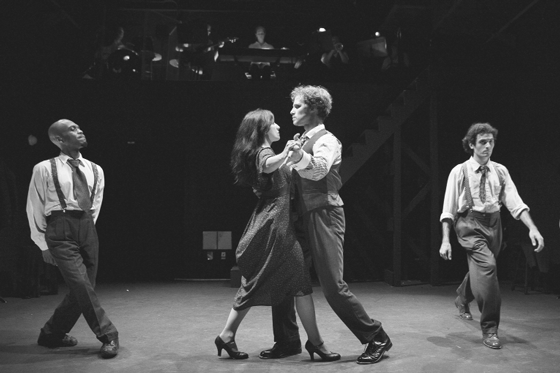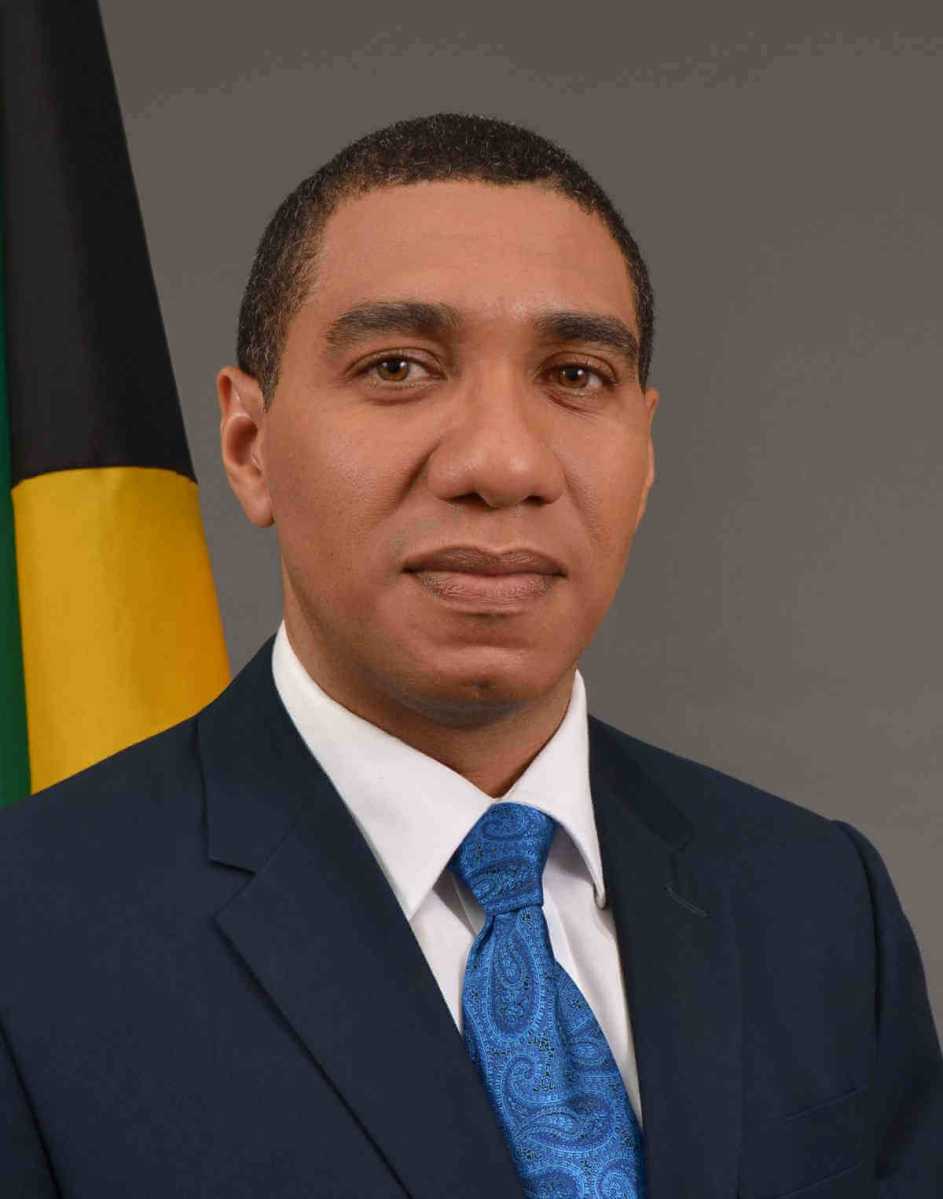By Scott Harrah
MARCO MILLIONS (BASED ON LIES)
Adapted from the play by Eugene O’Neill
Directed by Tom Ridgley
Through August 26th
The Lion, 410 West 42nd, between 9th & 10th Avenue
(212-279-4200; www.waterwell.org)
Rodney Gardiner, Hanna Cheek, Tom Ridgely and Arian Moayed in a scene from Eugene O’Neill’s “Marco Millions” (Based on Lies), adapted by the Waterwell theater company.
“Marco Millions,” a poetic, floridly written satire of the 13th century Asian travels of Italian explorer Marco Polo, is one of Eugene O’Neill’s lesser known, misunderstood, and perhaps most controversial plays. It was originally produced on Broadway in 1928 with lavish costumes and a cast of 19, including the legendary Alfred Lunt. It was revived again two years later and then didn’t appear on the New York stage until 1964, with a pared-down cast in a production at Lincoln Center that received tepid reviews. Although it was never a critical or commercial sensation in New York, “Marco Millions” was still an immensely popular American staple in countless regional productions nationwide—as intellectually engaging to audiences and reviewers in Middle America as “Strange Interlude” and “Long Day’s Journey Into Night.” Although the material is obscure indeed, “Marco Millions” is nonetheless a perfect play with which the talented experimental New York theater troupe Waterwell works its avant-garde magic.
With a live orchestra, a minimal set and a small but very competent cast, “Marco Millions” confronts the misunderstandings about race, class, anti-Semitism in the Middle East, Western imperialism and religious intolerance—all topics that seem ripped out of today’s headlines. Five actors — Rodney Gardner, Hanna Cheek, Arian Moayed, Tom Ridgley and Kevin Townley — bring to resonant life O’Neill’s string of stories about Marco Polo with a sense of excoriating irony and sarcastic verve about Western greed and materialism. There are various references to 21st century terms such as “politically correct” that obviously weren’t in the original 1928 script. But this is a play that remains relevant. “Marco Millions” is a parody of Western attitudes in both the Far East and the Arab world, places where Christian moral attitudes and the European way of life and colonialism were never quite embraced, either in 1271, 1928 or even the new millennium.
Through several clever vignettes delivered vaudeville-style, with rhyming songs, amusing dance steps and baroque monologues, O’Neill stabs the satirical needle into Marco Polo’s journeys to China, ancient Persia and India, and demonstrates how he introduced paper currency and European ideology to a reluctant and skeptical public in far-away lands along the Silk Road. Polo promised to marry a beautiful Venetian woman, but after traveling to Mongolia, he was asked to escort Princess Koekecin to Persia to marry a man she’d never met, Arghun Khan of Persia, and during the journey to the Middle East she began to fall in love with the Italian explorer. When they finally arrive in the ancient kingdom, the princess is shattered when she learns the tragic truth about her royal betrothed and the fact that Polo is already engaged.
Theatrical historians have contended that “Marco Millions” was O’Neill’s irreverent reaction to America’s post-World War I prosperity and sense of global domination, but if anything, this is a story about Marco Polo’s misguided sensibilities in regions of the world he never quite understood. Today it almost seems like a thinly veiled account of George W. Bush and Tony Blair’s quest to force-feed democracy to war-torn nations that are content to maintain their traditions and governments without American and British intervention.
The historical accuracy of Marco Polo’s infamous autobiography has been debated throughout the ages, and Waterwell pokes much fun at the explorer’s outrageous claims, such as his anecdote about seeing Asians whose faces resembled surrealistic dogs. Despite the many send-ups of what’s fact and merely Marco Polo’s alleged speculation about Eastern myths, “Marco Millions” is essentially a tragedy about the disintegration of ideals and the unethical quest for commerce.
Since “Marco Millions” has not been performed in New York in more than 40 years and there are few copies of the original script available, it is difficult indeed to know how much of O’Neill’s original script remains intact in this production. However, the cast is outstanding, most notably narrator Kevin Townley and the marvelous Hanna Cheek, the company’s only female member. With her lush singing voice and a sense of heartbreaking vulnerability, the eloquent Cheek gives “Marco Millions” the poignancy and veracity that seems true to O’Neill’s dramatic intentions.



































